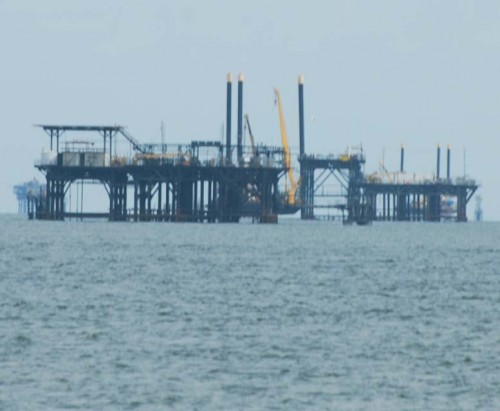
Tillman talks Terrebonne, reflects on vital three terms
September 6, 2011Thursday, Sept. 8
September 8, 2011The federal regulatory agency that oversees domestic oil and gas exploration announced last week a series of tools geared at providing offshore oil and gas operators with guidance and transparency in the muddled process of submitting exploration plans.
Industry executives and elected officials have bemoaned the Bureau of Ocean Energy, Management, Regulation and Enforcement for a lack of urgency and instruction in granting drilling permits since the federally imposed deep-water moratorium on oil exploration was lifted last October.
The agency, under the U.S. Department of the Interior umbrella, spent months revamping its safety rules to prevent another oil spill as catastrophic as the one last April. Some oil and gas operators have yet to figure out how to satisfy the new requirements, the agency has said.
Two hundred offshore industry personnel attended a BOEMRE workshop last Tuesday in New Orleans, the first time regulators have met with operators en masse since the moratorium was lifted. While there, operators were informed the bureau has introduced two online features that should assist in streamlining the permitting process.
One will allow credentialed users to track the status of permit applications online, increasing transparency, and the second is online accessibility to a fact sheet and list of frequently asked questions that should help operators submit “complete” and “stronger” applications.
“Our goal is to reduce the amount of back and forth with plan and permit applications and to help the industry learn from the best practices that many operators have developed to submit successful applications,” BOEMRE Director Michael R. Bromwich said in a news release.
Rep. Jeff Landry, R-New Iberia, has garnered a reputation for blistering Bromwich when the BOEMRE director appears before Congress. Endorsed last fall by the Tea Party, Landry takes pride in blasting the “job-killing” Obama Administration.
While Landry praised the federal agency for increasing its transparency, he stopped short of celebrating the “step in the right direction” as one that will close the gap between industry and regulators and said it should have been installed much sooner.
“Hopefully, this is a step in the right direction in that we will see more proactive moves by BOEMRE,” Landry said. “I applaud them for starting the process, and I just want to ensure that they continue moving in a transparent and industry-friendly manner.
“Again, this is one of the ways that by Washington standards, it’s something great. But by American standards, it’s poor.”
The day-long workshop also included a panel discussion of common errors and omissions found in the submission of permit applications and an overview and update on the sub-sea containment systems that are now required for all deep-water rigs.
Since mid-February, regulators have approved 113 deep-water permits for 34 unique wells that require sub-sea containment, BOEMRE said. Still, there are 17 permits pending and 22 have been returned to the operator because the applications are not complete.
Shallow-water permits have been approved more expeditiously, but the pace still lags behind historical levels, the agency conceded. Since June of 2010, the bureau has approved 69 new shallow-water permits. Thirteen shallow-water permits are pending and 10 were returned for more information.
The Gulf Economic Survival Team was formed under former Lt. Gov. Scott Angelle, now the secretary of the Department of Natural Resources, to facilitate dialogue between industry and regulation.
GEST commissioned the IHS Global Insight permit study last month that said about 229,000 national jobs would be created or retained if the pace of permitting returned to pre-spill levels.
Through the first 10 days of April, deep-water exploration and development plan approvals were down 80 percent, and shallow-water exploration and development plan approvals were down 90 percent, the study reported.
Lori LeBlanc worked as the deputy secretary under Angelle, and said she transitioned to executive director of GEST after Angelle left the lieutenant governor’s post because she was well acquainted with the issues stemming from the Deepwater Horizon oil spill.
“Based on just being at the workshop and hearing the dialogue, I think it was worthwhile and productive,” LeBlanc said. “But once again, the real results will be in seeing an increased number of permits being approved.
“We’re optimistic, but it’s wait and see. We measure success by permit approvals.”
At a Bureau of Ocean Energy, Management, Regulation and Enforcement workshop last week, drilling regulators and operators met for the first time since the deep-water moratorium on oil exploration was lifted. ERIC BESSON







